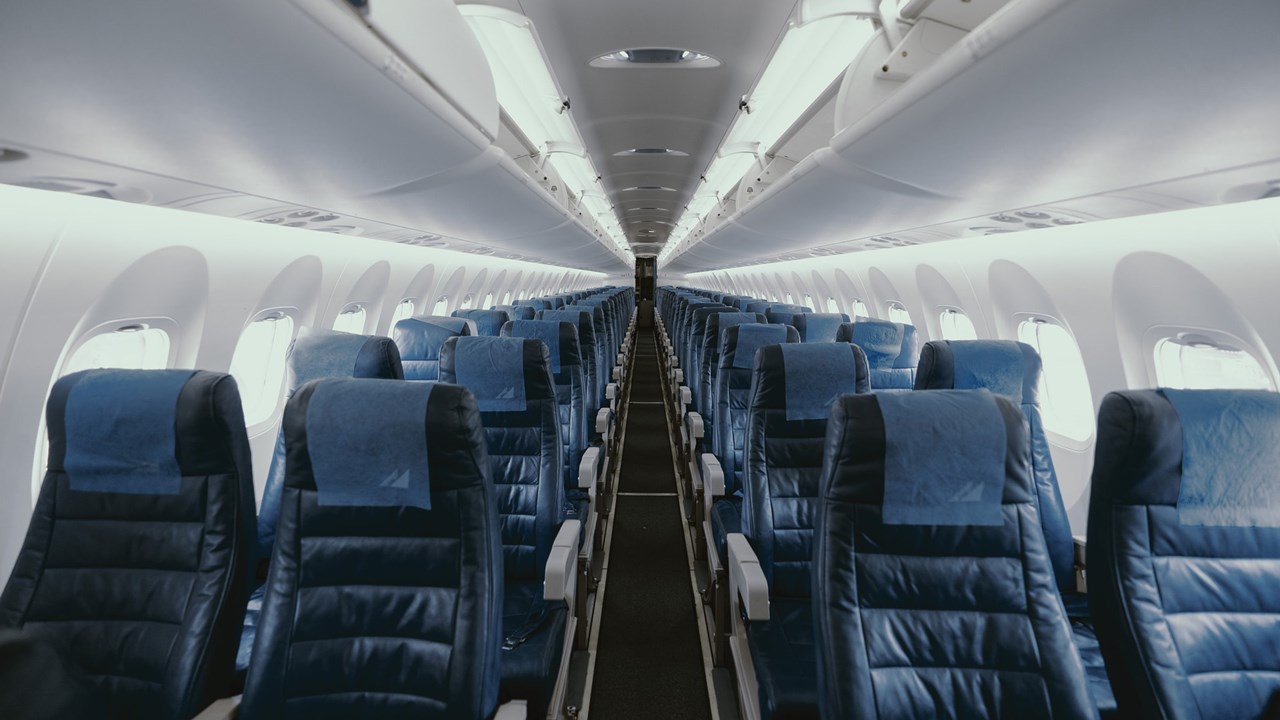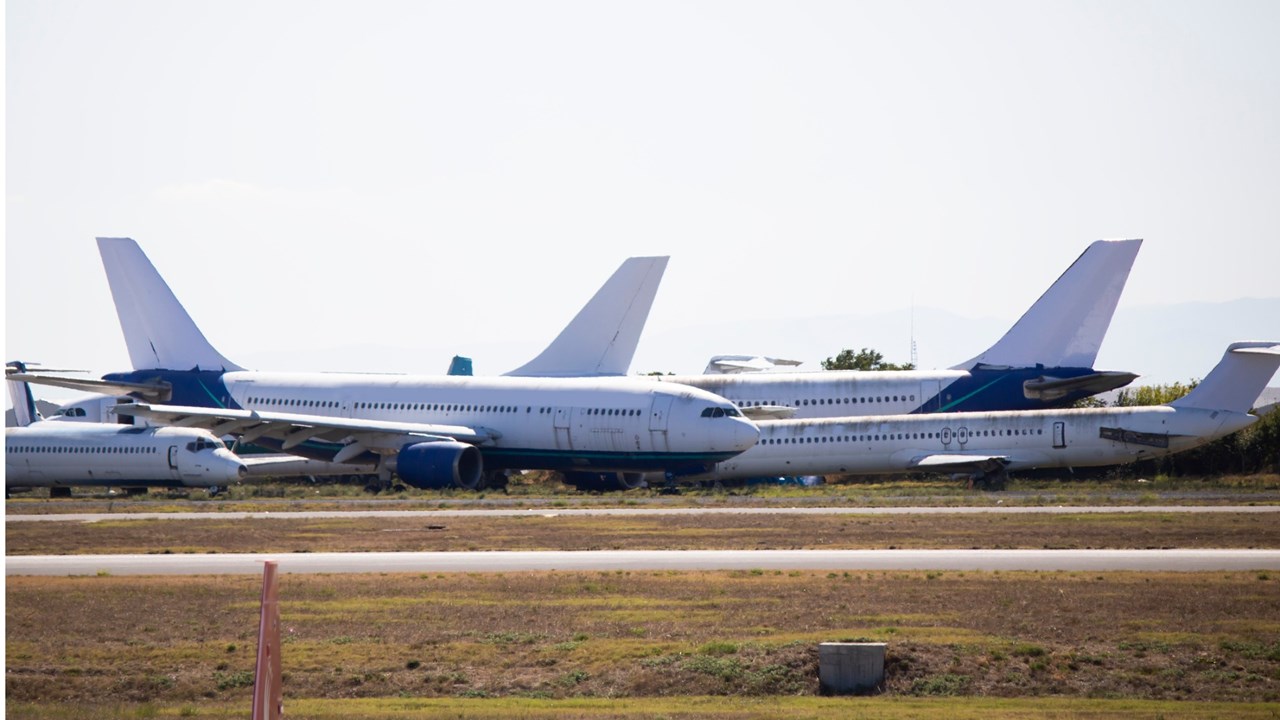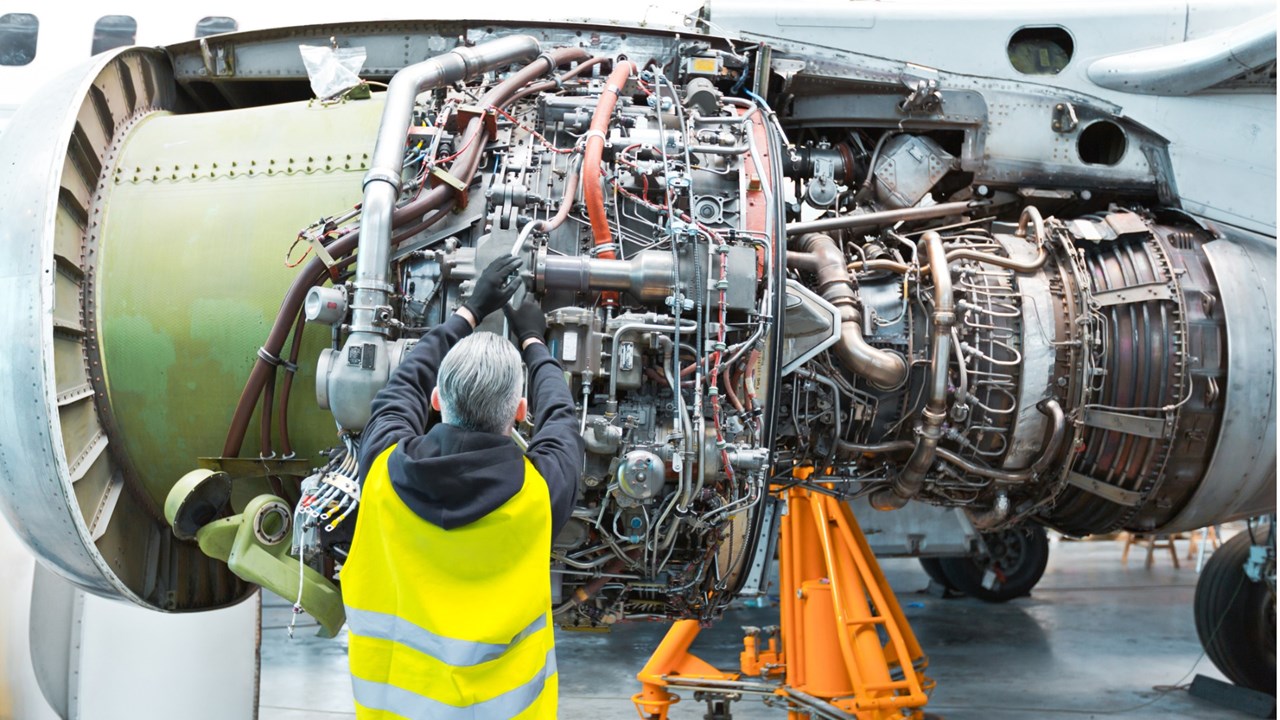From big drops in airline spending to the challenges of maintaining parked fleets and preparing for the hastened arrival of next-generation aircraft, COVID-19 has had major and potentially long-lasting effects on the aviation maintenance, repair, and operations (MRO) industry.
The aviation industry ended 2020 profoundly impacted by the COVID-19 pandemic but is slowly climbing its way out of the crisis’s deepest depths.
The International Air Transport Association (IATA) estimated that the global in-service airline fleet stood at 24,500 at the conclusion of this annus horribilis, a nearly 18 percent decrease from the previous year. Although this number represents a significant bounce back from a low point of under 8,000 a few months into the pandemic, that’s still a lot of grounded planes.
The downturn caused by COVID-19 extends to all segments of the aviation industry, including MRO providers, many of which have been particularly hard hit.
In this article, we examine how aviation MROs have been impacted by COVID-19 and take a look at the sector’s greatest challenges on the road to recovery.
Read more: Aviation supply chain challenges: pre-pandemic vs post-recovery

1. Plummeting demand and deferred maintenance
IATA’s year-end economic performance report paints a dire picture of an industry that “has been virtually grounded by COVID-19”. It forecasts industry-wide net losses of $118bn in 2020 and an additional $38bn in losses in 2021. The consulting firm Accenture was similarly bearish. Its Commercial Aerospace Insight Report, released in October, predicted that “airlines will experience their worst year, by far, in history” and that the commercial aerospace market would decline 37 percent in 2020.
With passenger demand down so significantly as a result of the pandemic and its corresponding travel restrictions and economic recession, airlines have been forced to find ways to cut costs. Many of those cost-cutting measures came from cancelling or deferring aircraft orders. According to the Accenture report, the combined deliveries of Airbus and Boeing declined 58 percent in the first half of 2020.
RELATED ARTICLE: 2021 Aviation Industry Outlook
The crisis also forced airlines to cut back on MRO spending and put off maintenance whenever possible. Oliver Wyman estimated that MRO spending fell by 45 percent in 2020. The international management consulting firm’s pre-COVID forecast originally predicted $91.6 billion in MRO spending but an updated report released at the end of July dialled that estimate back to $50.3 billion.
The drop in MRO spending is especially pronounced in the sector’s biggest and most expensive segments: engines and airframes. The Oliver Wyman report estimated that airframe spending plummeted by 59 percent, with a pre-COVID spend estimate of $17.9bn adjusted down to just $7.9bn post-COVID. Deferred engine overhauls and parked fleets made engine spend fall from $43.5bn pre-COVID to $23.2bn post-pandemic.
Looking ahead to the end of 2021, the firm still expects overall MRO spending to be 25 percent lower than originally forecast.

2. Parked fleets create an unprecedented situation
At the peak of the first wave of the coronavirus crisis, airlines parked around 60 percent of the total global fleet. Never before has the industry seen so many of its aircraft temporarily put out of service. This unprecedented situation has caused a number of maintenance and repair challenges.
While parked fleets may experience less wear and tear than when they are in service, the aircraft aren’t just parked somewhere and left to sit until they’re needed again. Far from it. Most aircraft are parked in “flight-ready” condition and because airlines’ post-pandemic plans are still uncertain and dependent on factors out of their control, many have opted to keep their parked aircraft on active maintenance rather than moving them to so-called “deep storage”.
Before parking the aircraft, even if it’s just for a few days, there’s a detailed process that includes covering intakes and exhaust points, protecting the internal entertainment systems, greasing and cleaning landing gear, turning off cockpit controls, and disconnecting batteries. Most parked aircraft are then put on a service schedule that requires basic visual inspections every seven days, electrical and brake maintenance every 14 days, and fuller checks, including starting the engine and inspecting anti-ice systems, every 30 days.
While these practices are fairly standard, the scale at which they occurred in 2020 is anything but. With such a long road to recovery, how exactly this will play out remains unknown. According to an October study published in the Journal of Air Transport Management, periodic maintenance intervention will go down the longer an aircraft is parked but with airlines leery of consigning aircraft to deep storage, which typically entails draining oil and fuel from the engines, some of the currently parked aircraft may eventually enter a grey zone in which they get less maintenance than they normally would but aren’t formally put out to pasture. Aviation Week reported that while most maintenance manuals include plans for long-term storage, they don’t offer detailed instructions for how to prepare aircraft for extended periods of being out of service.
The uncertainty that airlines face about what to do with their parked fleet will impact aviation MRO providers. The parked fleets could end up having a devastating impact on independent MROs, as airlines may decide to bring the basic maintenance processes in-house in another cost-cutting move. And the longer aircraft remain grounded, the higher the chances that some airlines will not survive the crisis. If and when airlines go bankrupt, aviation MROs and other dependent companies are likely to follow.

3. Accelerated aircraft retirements pressure MROs
Some of the parked fleets will almost certainly never come back into service. The industry slump caused by the pandemic has sped up airlines’ existing plans to retire older aircraft. The coming retirement of a large portion of the current fleet has long been expected. We reported last year that as much as three-fourths of the current fleet would be put out of service within the next two decades but at that time no one could have predicted how different the situation would look today.
According to industry estimates, around 2,000 current aircraft that are at least 20 years old will be retired early as a result of the COVID-19 slowdown. This is a massive increase over the last five years, which has seen annual retirements in the 550-750 range.
While replacing these outdated models with more efficient and sustainable ones can be seen as a positive in light of the aviation industry’s growing green ambitions, the accelerated retirements of older aircraft also come with a downside for the MRO industry.
Aircraft require more maintenance as they age and these later-life upkeep projects are typically more expensive than early-cycle maintenance. Early retirements of older aircraft are expected to cause a $30 billion drop in aviation MRO spending over the next decade, according to a report from Aviation Pros.
RELATED ARTICLE: The five biggest risks to the aviation industry's COVID recovery

4. Changing aftermarket landscape creates new challenges
The retirement of older aircraft will also cause significant changes in the used serviceable materials (USM) landscape. The Oliver Wyman report forecasted spending on all aircraft parts, both new and used, to be just $26bn in 2020, less than half of its original forecast of $60bn. USM spending is expected to account for 11 percent of the overall parts and materials market, compared to nine percent last year, as the cash-strapped industry looks for ways to lower costs.
There are also concerns that stripping parts from retired aircraft will create a glut in the market. Oliver Wyman warns that “this cannibalization will create a substantial ripple effect throughout aviation’s supply chain and will make it critical for MRO providers to ensure reliable sources of parts".
The MROs that can position themselves as reliable distributors to third party vendors or dependable direct sources of USM parts, which can be 60-80 percent of the price of a new part, will be setting themselves up for future success once air travel begins to bounce back to pre-pandemic levels. But that’s a long haul, with most industry experts not expecting a return to pre-COVID levels until 2023 or 2024.
As we reported in our 8 Big Aviation Aftermarket Trends for 2020, OEMs and the big airframers like Airbus and Boeing are increasingly entering the aftermarket. While this trend offers clear opportunities for airlines, it also presents challenges for smaller MRO providers and parts providers who have a hard time matching the resources and technologies of the larger OEMs. With USM demand and prices currently low as a result of the industry’s COVID troubles, Oliver Wyman predicts that the larger market players may see this as an opportunity to buy up supplies.
“For the smaller aviation MRO providers [...] the COVID-related falloff in demand and recession may prove existential threats to their operations”, the Oliver Wyman report warned.

5. New fleet will require new MRO skills
As mentioned above, many airline operators view the COVID-19 crisis as an opportunity to fast-track the conversion of their fleets from older models to newer ones. The next generation of aircraft will be more technological and more connected than their predecessors. With the replacement timeline now compressed because of the industry downturn, the MRO industry will have less time to adapt to the new models.
New innovative solutions like predictive maintenance, increased digitisation, utilisation of Big Data and blockchain technologies are no longer some hypothetical far-off future. They’re here now and MRO suppliers will have to make investments to both support these new capacities and train their technicians on how to operate and service them.
Further complicating this challenge for MRO suppliers, newer aircraft are not only more high-tech, they also require less maintenance and fewer replacement parts. With traditional aircraft MRO services thus likely to decline, how suppliers respond to the shift to next-generation aircraft will be vital.

6. Labour market concerns in MRO continues
In light of 2020’s steep spending decrease and the projected future drop in demand, many MRO providers have had to cut jobs or even shut down altogether. This unfortunate development is in line with broader industry trends. IATA estimates that over one million employees in the global airline industry lost their jobs in 2020. Only a modest five percent employment increase is expected in 2021.
It goes without saying that the entire aviation industry and the MRO sector are in a much different place today than just one year ago. But certain long-term trends remain the same. Among those are concerns about a dwindling labour supply that is driven by an ageing workforce and fewer young and trained aviation maintenance technicians (AMTs) ready to take their place within the job market.
Boeing and Airbus market forecasts released in 2018 predicted that the MRO industry will need well over 600,000 new technicians by the year 2037. The industry has long had difficulty attracting younger talent, in large part because wages and benefits fall short of their expectations. With IATA and others predicting that industry wages will decline as a result of COVID-19, this long-standing challenge is not likely to be solved anytime soon.
The Satair takeaway
2020 was a year like no other, and not just for the aviation industry. The COVID-19 pandemic and the global recession it created have affected everyone, including the aviation MRO industry. This year has also taught us that the world can change in the blink of an eye and thus our predictions for the MRO and aftermarket industries are just that – educated guesses that may look much different in another year’s time.
But some of these challenges we have seen coming for quite some time now. COVID-19 has accelerated industry trends and made them more pressing than ever. As for COVID-19s impact on aviation MRO, it could prove to be a catalyst for change that betters prepare the industry for both the eventual return in global demand and a more sustainable, high-tech future.
RELATED ARTICLE: What are the current, biggest travel concerns for passengers?